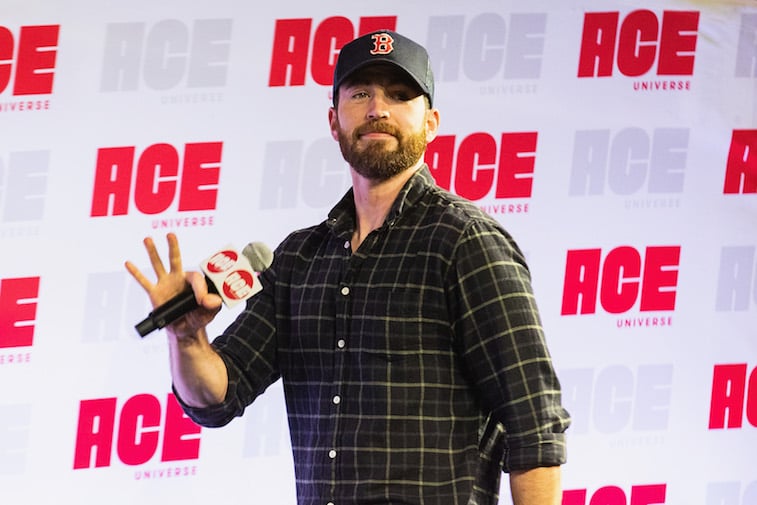The ‘Touring Propaganda Musical’ Was the Best Thing That Ever Happened to Steve Rogers
Captain America is one of the most iconic superheroes in history. He was one of the very first superheroes ever created, and he actually played a small role in World War 2. Captain America, as a comic book character, was essentially American propaganda during the war.
So, when it came time for Chris Evans to play Steve Rogers, there was a moment in the movie when Rogers was just that, an actual propaganda machine. Here’s why that’s actually the best thing to happen to Steve Rogers.
It improved what the super-soldier serum couldn’t

Before Rogers became Captain America, he was a short, skinny, and shy guy who wasn’t really a good soldier. But, he was ultimately chosen for the super soldier program because he was brave and courageous. So Rogers got the serum, and his muscles got larger, he got taller, and he became Captain America.
But the serum didn’t change everything. Rogers still had the same level of confidence that he had before, and he was also not a great public speaker, either. That’s where the touring propaganda musical aspect of the movie came in. It improved something that no workout or super drug could improve.
This touring propaganda musical was just a short scene in the movie, but it was an impactful one. For just a few minutes in ‘Captain America: The First Avenger’, Captain America’s touring propaganda musical visits town after town before visiting the troops in Europe as well.
Without being the centerpiece of that touring propaganda musical, Rogers wouldn’t have learned how to speak in front of crowds nor would he have learned how to be an inspiration to his teammates. He wouldn’t have the confidence or the charisma to be Captain America, even though physically speaking, he was.
But it has a deeper meaning as well
As some fans on social media, such as Reddit, have suggested, there’s also a deeper meaning to this small scene. During the touring propaganda musical, Captain America’s costume is not the one that he wears into combat. Instead, it’s more similar to the costume that Captain America wore in the comics during World War 2.
This difference in the costume may be a hint by the filmmakers that this touring propaganda musical segment was a parody of Captain America from the comics during World War 2.
The comics back then were just as silly as some of the scenes in the musical were. For example, during the musical, Captain America punches Adolf Hitler in the face, and that’s a direct reference to something that happened in the comics.
So, not only was this scene a good way to critique the comic books, but it also helped Rogers realize something about himself.
From a touring propaganda machine to Captain America
At the end of the scene, Rogers and his touring propaganda musical is performing for American troops who were fighting in Italy. Captain America gets heckled by the troops, as they don’t really care for him.
The troops throw fruit at him, causing him to retreat off stage. It was at this point that he realized that if he wanted to make a difference, he had to do more than just be a propaganda machine.
That’s where Bucky Barnes, who’s been Rogers’ longtime friend, comes in. Barnes goes missing while fighting in Europe, so Rogers chooses to go fight on the front lines to find Barnes instead of continuing with the propaganda musicals.
This choice shows a lot about Rogers and who he is as a person. Rogers isn’t here to be a propaganda machine. He’s here for his friends. And like he showed during the events of ‘Captain America: Civil War‘, he’s willing to go all in for the people that he cares about.


